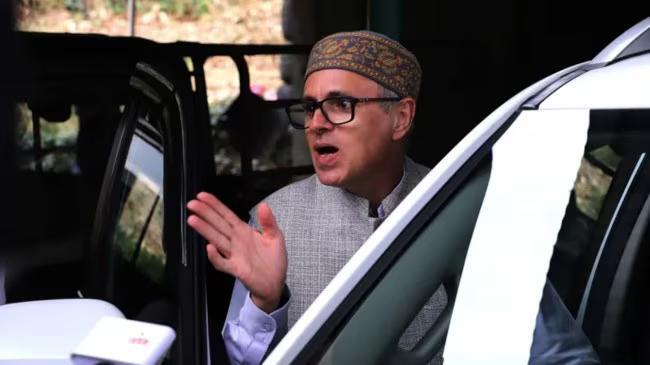
J&K CM to Launch Signature Campaign for Statehood; Oppn Reacts
On the occasion of India’s 75th Independence Day, Jammu and Kashmir Chief Minister Omar Abdullah announced his plan to launch a signature campaign to garner public support for the state’s statehood. In his Independence Day speech, Abdullah said, “Till now, through letters…and meetings, we’ve raised our voice. Now we’re going to raise our voice from every village of J&K to Delhi.” The Opposition parties have, however, reacted sharply to the move, questioning its legality and constitutional sanctity.
Abdullah’s decision to launch a signature campaign comes in the wake of the ongoing political uncertainty in Jammu and Kashmir, which has been a subject of controversy and debate for several years. The state has been under President’s Rule since August 2019, following the abrogation of Article 370, which granted special status to the state. The Opposition parties have been demanding that the state be granted full statehood, while the Central Government has maintained that the decision to abrogate Article 370 was taken to integrate Jammu and Kashmir with the rest of the country.
The signature campaign, which is expected to begin soon, aims to collect signatures from people across Jammu and Kashmir in support of the state’s statehood. The campaign is seen as a move to put pressure on the Central Government to reconsider its decision on Article 370 and grant full statehood to the state. Abdullah has justified the campaign, saying that it is a democratic way to express the people’s sentiment and demand their rights.
However, the Opposition parties have criticized the move, saying that signature campaigns have no legal or constitutional sanctity. They have accused the Chief Minister of resorting to “theatrics” to garner public attention and distract from the real issues facing the state. Opposition leaders have also questioned the timing of the campaign, arguing that it is an attempt to influence the upcoming Assembly elections in the state.
The Bharatiya Janata Party (BJP), which has been a key player in the politics of Jammu and Kashmir, has also reacted to the Chief Minister’s announcement. A BJP spokesperson said that the party does not support the signature campaign and that it is an “exercise in futility.” The spokesperson added that the BJP is committed to the integration of Jammu and Kashmir with the rest of the country and that the state’s statehood is not a viable option.
The National Conference (NC), the main Opposition party in Jammu and Kashmir, has also criticized the Chief Minister’s move. An NC spokesperson said that the party does not support the signature campaign and that it is an “attempt to mislead the people.” The spokesperson added that the NC is committed to the restoration of Article 370 and the state’s statehood.
The Peoples Democratic Party (PDP), another major Opposition party in the state, has also reacted to the Chief Minister’s announcement. A PDP spokesperson said that the party welcomes any move that can help to resolve the political crisis in the state. However, the spokesperson added that the party is not convinced that the signature campaign is the best way to achieve this goal.
The Chief Minister’s decision to launch a signature campaign has also sparked a debate among the people of Jammu and Kashmir. While some have welcomed the move, saying that it is a democratic way to express their sentiments, others have criticized it, saying that it is an attempt to orchestrate public opinion.
In conclusion, the Chief Minister’s decision to launch a signature campaign for statehood has sparked a controversy in Jammu and Kashmir. While the Opposition parties have criticized the move, saying that it has no legal or constitutional sanctity, the Chief Minister has justified it, saying that it is a democratic way to express the people’s sentiment and demand their rights. The campaign is expected to be an important development in the ongoing political uncertainty in the state, and it remains to be seen whether it will have any impact on the Central Government’s stance on Article 370 and the state’s statehood.






